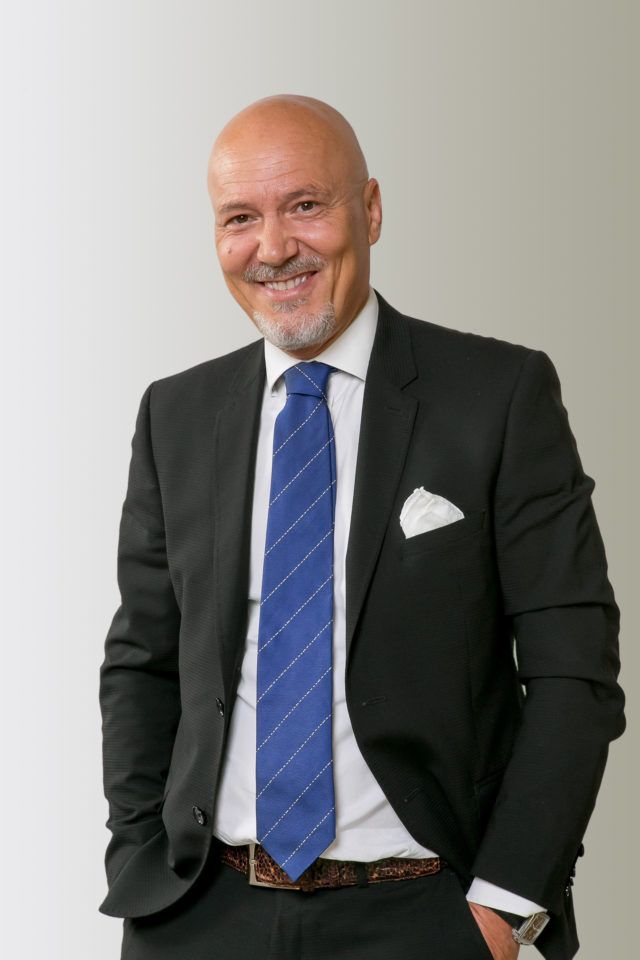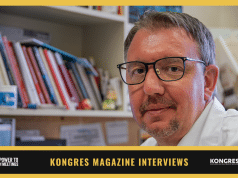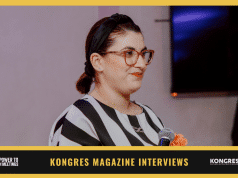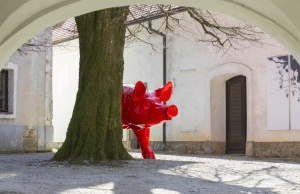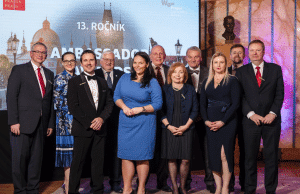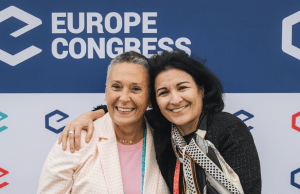ORGANISING EXHIBITIONS THAT ARE EFFECTIVE BUSINESS TOOLS, AS WELL AS BEING PRIVILEGED PLACES FOR LEARNING ABOUT MARKET EVOLUTION

Q: How is the exhibition market changing?
Over recent years it has definitely become a more global market, but also a more sectorial one. Specialisation driven by trade fairs has strengthened the function of business’ development tools: taking part in exhibition events and dialoguing with the competition has become an essential requisite for continuing to be more competitive. Fiera Milano is well aware of this and strives to only offer effective, attractive events, which meet the expectations of Italian and international operators and are constantly aligned with evolution of the reference market. The first production sectors we worked in are naturally those where Italy boasts a position of excellence and which, through our fairs can increase their global visibility: furnishings, agro-food, fashion-accessory, mechanics, packaging.
Q: Why do you think people are still interested in exhibitions?
Because they are valuable tools for business, innovation and (increasingly in recent years) internationalisation for companies—mainly small and medium enterprises—which represent the cornerstone of our economic system. Fairs are irreplaceable tools, even if the advent of internet for a while led us to think differently. In reality, nothing can equal personal, direct contact between those looking for products or complex solutions for their business and those able to provide them, often adapting their goods or services to the specific needs of the client.
Q: What makes a good exhibition organizer?
Organising exhibitions that are effective business tools, as well as being privileged places for learning about market evolution and professional updates. There must obviously then be services, run both by the trade fair district and the city (and here I am referring to hospitality, transport, entertainment) to satisfy the increasingly more demanding expectations of a clientele of operators, most of them from outside Italy, who have little time at their disposal and do not allow for inefficiencies.
Q: What do you believe are the key statistics determining ROI for exhibitors?
First of all, visits registered to the stand, not only just in terms of quantity, but primarily in terms of quality, and the international component of those contacts; in the global economy we operate in today, the greater the latter, the more interesting the event. But also the number and weight of the (other) exhibitors are important.
Number and weight of the companies exhibiting in fact define the importance of the event for the sector, its representativeness and international appeal. For those events that while being trade fairs also deal in goods or services for the end consumer, another relevant factor for the exhibitor is also the influence the show has outside the pavilions that house it. Its capacity to activate a communication circuit that engages the consumer, arousing interest and curiosity around the goods sector the event represents. With its busy calendar of external events, which have by now become an event in itself, the Salone del Mobile (International Furniture Show) in Milan has in this sense blazed a trail. A further evaluation criterion for the exhibitor is the quantity of contracts signed at the fair. But it often happens that contracts are finalised at a later date, so contacts are perhaps more important than contracts.
Q: What do you think about this year’s trade fairs and what are your company’s biggest business challenges?
We closed 2015 with very positive results (337 in turnover and 44 in Ebitda) and thanks also to the recent increase in capital, we can say that Fiera Milano is in a condition to look to the future with confidence. 2016 is, however, a difficult year because on our current calendar, even years are penalised by the absence of the big two-yearly events, which are concentrated in odd years. There is imbalance between even and odd years, and we are remedying this. In this direction, we have acquired Ipack-Ima, the international packing and packaging fair, and built around it an ambitious fair project called “The Innovation Alliance”. This will be name encompassing five so far separate fairs that will take place at Fiera Milano in May 2018: Ipack-Ima, Meat-Tech (meat packaging), Plast (plastics and rubber), Print4All (converting and industrial printing) and Intralogistica Italia (industrial handling). These five events each illustrate a different soul of Italian manufacturing excellence. They represent a sector worth 19.1 billion euros. In addition to this, Fiera Milan is moving along three paths: we want to increase the events held in Italy; extend our presence abroad thanks to partnership with the big international players; export our top “trade fair products”, through cloning of the same in other parts of the world. These are the cornerstones we are working on.
Q: Are the national and regional tourist organizations fulfilling their role in promoting trade fairs?
Local government (Comune di Milano and Regione Lombardia) together with Fiera Milano are definitely helping to get the beauty and great tourist vocation of Lombardy known throughout the world and promote the factors of appeal of our region in Italy and on the main international markets. Integrated promotion of these factors through contact with the public and operators at the most important fairs is a formidable strategic action for making the most of all the opportunities that our region has to offer.
PERSONAL BACKSTORY
Q: What key business lessons have you learned over the years?
If something has not worked so far, it is not a given that it will not work in the future.
Q: What’s your management style?
I am a sailor in my free time, therefore I believe it is fundamental that everyone on board has a clear idea of their task. Starting with the captain.
Q: What would make your job easier?
Being exhibition addicted.
Q: The most memorable event for you?
The next one opening.


